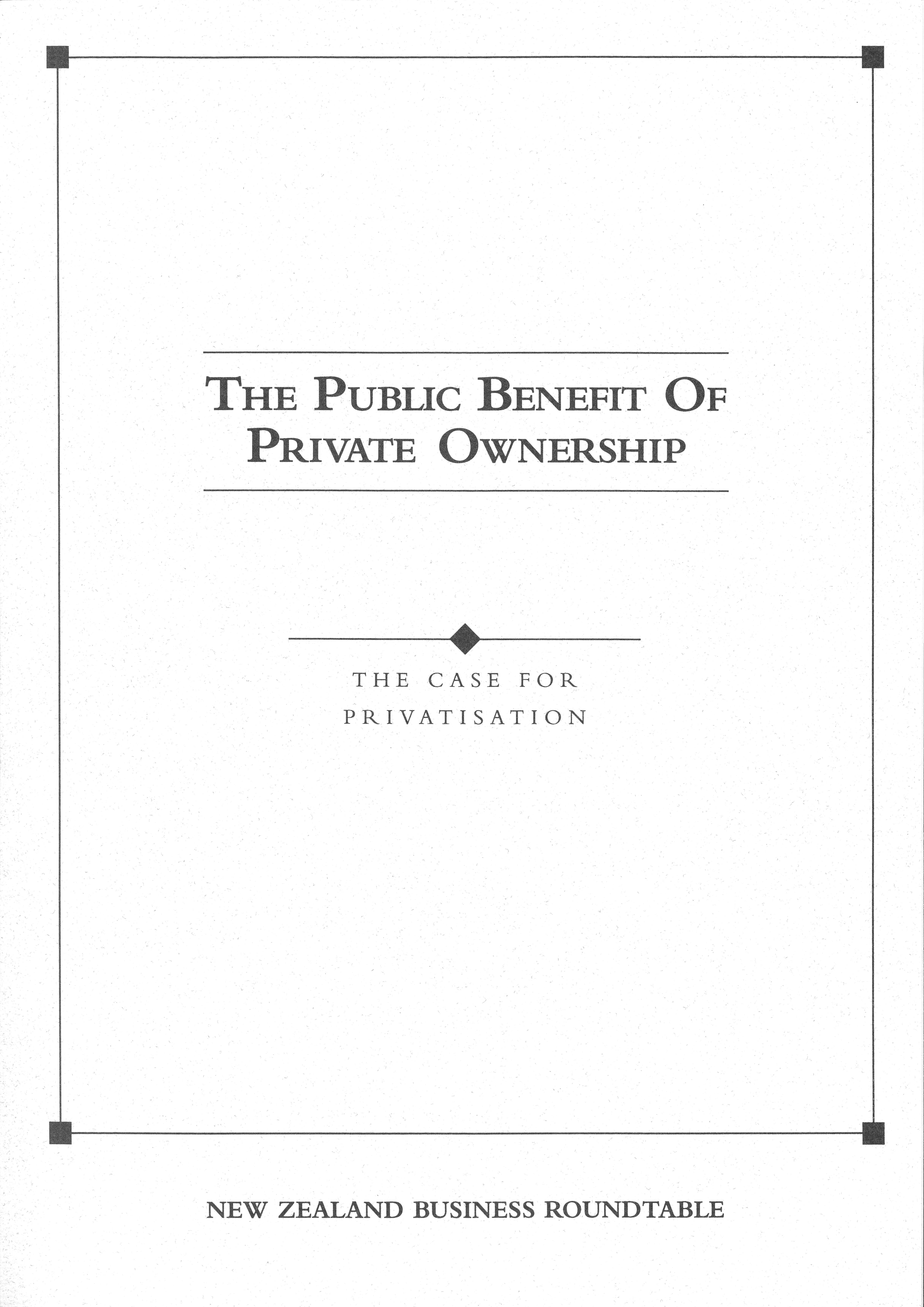The New Zealand experience with requiring state-owned enterprises (SOEs) to be run as successful businesses demonstrates that high quality reforms can generate enormous gains in productivity, product quality and profitability - along with lower (real) prices for consumers.
Nevertheless, the gains were always likely to be limited by the difficulties involved in:
* applying full commercial disciplines when state industries do not have to succeed to survive;
* providing risk capital to SOEs when fiscal constraints and/or political considerations may conflict with commercial goals;
* making the competitive environment genuinely neutral, when continuing government ownership brings with it the possibility of future state bail-outs; and
* maintaining the early gains in the face of the political pressures to weaken the commercial disciplines which were put in place when the SOEs were first formed.



